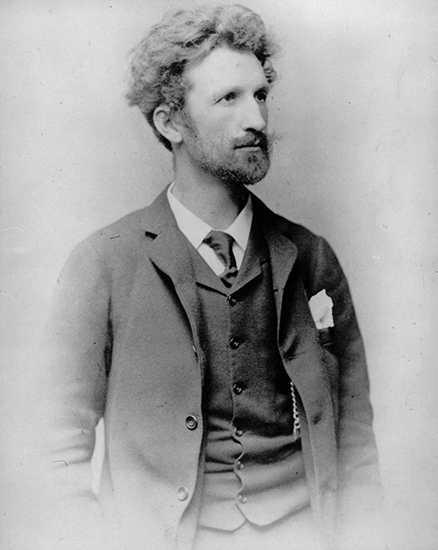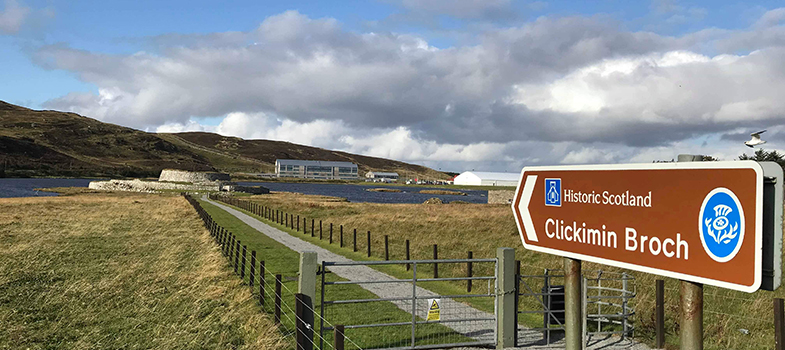16.5 Scots in the Southern Hemisphere

In South America, the two most famous Scots are Admiral Cochrane who was one of the prime movers in the liberation of Chile, Peru and Brazil from colonial rule, and R. B. Cunninghame Graham, who was known simply as Don Roberto across the continent. He eventually came home and founded both the Scottish Labour Party and the National Party, the forerunner of the SNP. His writing is thrang with Scots.
In Buenos Aires, he created a character called Christie Christison, a respectable merchant who has lost none of his Buchan dialect after 30 years on the River Plate. When offered the pick of Indigenous girls and horses in exchange for his wife, he is tempted but tells the chief “Christians dinnae sell their wives”. But they buy them – later we discover that Christie had bought his wife Jean back from the Peterhead brothel she had escaped to when he had battered her earlier in their marriage! (Kay, B. (2006) The Scottish World: A Journey Into the Scottish Diaspora.)
Charles Murray, who was well known to my generation because of his much anthologised poem ‘The Whistle’, used Scots to describe his sojourns in South Africa.
Activity 10
Now work with an extract from another of Murray’s poems about Scottish emigrants in South Africa: ‘Scotland oor Mither’ (1920, p. 129).
Part 1
Listen to the poem and then record yourself reading it, comparing your recording with our model.
Transcript
Listen
Scotland our Mither ‑ this from your sons abroad,
Leavin' tracks on virgin veld that never kent a road,
Trekkin' on wi' weary feet, an' faces turned fae hame,
But lovin' aye the auld wife across the seas the same.
Scotland our Mither ‑‑ since first we left your side,
From Quilimane to Cape Town we've wandered far an' wide;
Yet aye from mining camp an' town, from koppie an' karoo,
your sons richt kindly, auld wife send hame their love to you.
Model
Scotland our Mither ‑ this from your sons abroad,
Leavin' tracks on virgin veld that never kent a road,
Trekkin' on wi' weary feet, an' faces turned fae hame,
But lovin' aye the auld wife across the seas the same.
Scotland our Mither ‑‑ since first we left your side,
From Quilimane to Cape Town we've wandered far an' wide;
Yet aye from mining camp an' town, from koppie an' karoo,
your sons richt kindly, auld wife send hame their love to you.
Part 2
As you have seen with other examples throughout this unit, the Scots language used by emigrants became infused with aspects of the languages of the countries they lived in. This was also the case in Murray’s poem.
Read ‘Scotland oor mither’ again and highlight the words that are not part of the Scots language.
Discussion
Note that ‘track’ with the meaning used here does not exist in Scots, although you will find a word with the same spelling in the DSL.
I will end my stravaigin in the Antipodes, where again the Scots communities established Burns clubs and football clubs – sometimes the two were melled thegither, and they wrote poetry in their mither tongue. One of the local poets in Dunedin was John Barr from Paisley who emigrated to New Zealand in 1852 and became a successful farmer.
Activity 11
In this activity, you will work with the opening verse of Barr’s ‘There’s Nae Place Like Otago Yet’ (1861, p. 62). His verse adorned the Caledonian Society of Otago, mostly in praise of his adopted homeland. The praise becomes apparent in the many comparisons he makes with the home he left in Scotland, underlining reasons why many people left Scotland in search for a better life.
Listen to the verse and then record yourself reading it, finally comparing your version with our model. To get as close to the model as possible, you can repeat recording yourself.
Transcript
Listen
There’s nae place like Otago yet,
There’s nae wee beggar weans,
Or auld men shivering at our doors,
To beg for scraps or banes.
We never see puir workin folk
Wi’ bauchles on their feet,
Like perfect icicles wi’ cauld,
Gaun starving through the street.
Model
There’s nae place like Otago yet,
There’s nae wee beggar weans,
Or auld men shivering at our doors,
To beg for scraps or banes.
We never see puir workin folk
Wi’ bauchles on their feet,
Like perfect icicles wi’ cauld,
Gaun starving through the street.
I began by referring to Robert Louis Stevenson being “touched home” on hearing Scots in Napa Valley. Scots has that ability for its native speakers. A few years ago, I made three programmes about the Scots regiments who fought in the Korean War and recorded two very different stories of coming across Scots in the hostile environment of the Korean winter.
The first was told by the late George Younger MP who recalled the humour and joy the squaddies experienced when the mail brought them copies of the Sunday Post with its comic strips of Oor Wullie and the Broons. The second was told by a soldier of the Black Watch, who in a deserted war-torn village in an abandoned, ruined house came across an edition of the poetry of Burns published in Japan.
He kept the book close to him throughout the war, read it and took comfort from it. His story reminded me of the moving story of the Beirut hostage Tom Sutherland, who survived mentally for six years by reciting the poems of Burns he had in his head. Burns touched Tom home as well.
I am proud tae hae a guid Scots tongue in ma heid, and giving talks as far apart as Poznań in Poland and Calabar in Nigeria, I have experienced the warmth that a Scots voice can generate. In Poznań it was old Polish soldiers who had been stationed in Scotland during and after the war, and who came to the talk as they missed hearing Scots voices.
In Calabar, it was the congregation in Duketown Parish Church who heard in me the voice of the good people who had taught them in the mission schools and told them bible stories in the Sunday schools…..the voice of the legendary Mary Slessor herself – the Mother of All the Peoples. The love for Mary there was visceral and tangible. Such experiences gied me pride in ma mither tongue an mindit me on the auld Scots saw I got fae ma mither an faither as a wean in Gawston: “Thaim wi a guid Scots tongue in their heid are fit tae gang ower the warld.”
16.4 Scots in North America
